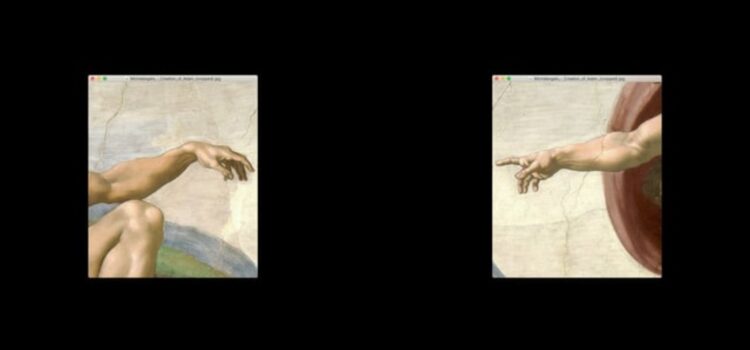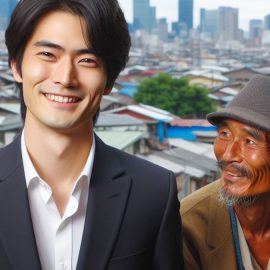

This article is an excerpt from the Shortform book guide to "Skin in the Game" by Nassim Nicholas Taleb. Shortform has the world's best summaries and analyses of books you should be reading.
Like this article? Sign up for a free trial here .
Is religion rational? Does religion benefit or hinder human societies?
According to Nassim Taleb, religion is rational in the sense that it contributes to our survival. With this in mind, he argues that everyone is religious to some extent because it is human nature to yearn for the survival of our species.
In this article, we’ll explore Taleb’s take on religion as a tool for the end goal of humanity—survival.
The Rationality of Religion
According to Nassim Taleb, religion is society’s expression of loss aversion. Just as each of us plays it safe in all the little areas of our lives to avoid cumulative ruin, religion ensures that as many people as possible live in ways that avoid contributing to the risk of destroying the human race.
This is why religions impose commandments on their adherents—these rules are a way for entire civilizations to hedge their bets against moral deviance. These rules are typically simple, without gray areas, and err on the side of restriction and safety. This makes them easy to teach, difficult to misunderstand, and more likely to avoid the risks of moral ambiguity. Consider the 10 Commandments. If a society is deeply, spiritually compelled to obey commandments like “You shall not steal,” “You shall not murder,” or “You shall not commit adultery,” it’s going to be a more stable, productive society.
Religion is a Prerequisite for Liberalism
Taleb is a vocal admirer of the philosopher John Gray, calling him the wisest living person today. Although Gray is an atheist (unlike Taleb, who is a practicing Greek Orthodox), he shares a similar stance on religion as Taleb, criticizing the hostility toward religion held by “evangelical atheists.” Gray argues that religion is a historical prerequisite for a society built on liberal, humanist values such as human equality and personal autonomy.
Gray points out that “new atheists” like Sam Harris hold the assumption that widespread scientific understanding rationally results in a society built on liberal values. Gray, however, states that there is no link between scientific advancement and liberal values, as evidenced by historical ideological movements that are illiberal, yet founded in science and atheism, like Stalinism and Maoism. Liberal values like freedom and justice cannot be taken for granted as universally accepted virtues. There have been many ideologies, religious and secular, that deliberately reject these ideas—Gray cites the Salafi Islam of Boko Haram and Pol Pot’s communism in Cambodia. Specific moral perspectives like liberalism aren’t prewritten within the human heart. I
Instead, Gray argues that religious beliefs are what spawned the idea of the uniquely valuable human soul—the foundation of liberal values. There would be no liberal humanism without religion. Gray cites Nietzsche, who recognized this fact and rejected both liberalism and the religions that he saw as responsible for it. Even the idea of the separation of church and state is founded in Christian thought, established in the Bible and by ancient Christians like Saint Augustine.
| Values Matter More Than Beliefs Similar to Taleb, novelist David Foster Wallace equates religious and atheist ideologies in his 2005 Kenyon College Commencement Speech “This is Water,” which was later republished in book form. Wallace argues that “there is actually no such thing as atheism.” Like Taleb, Wallace downplays the Metaphysical beliefs of any worldview, focusing more on the direction and meaning it adds to your life. In his eyes, the most important characteristic of any religion or ideology is the value system it causes you to live by. Any worldview that tells you what is important and why is a religion, and some of these value systems are far healthier than others. Wallace explains that some people worship money, power, or beauty, measuring how well they’re fulfilling the purpose of life by these materialistic values. But these values are temporary and largely out of your control. If you pursue materialistic values, you’ll never feel like you have enough and fall into helpless despair when they’re gone. Like Taleb, Wallace judges traditional religion favorably, as, compared to these materialistic ideologies, it provides a more reliable source of purpose and meaning founded on virtuous principles. Wallace’s point with this commencement speech was to explain the true value of education. By being exposed to new ideas and different perspectives, the student is really learning how to detach from assumptions and consciously choose how to interpret the world around them. They’re learning how to avoid the default setting of simply worshipping whatever their parents, friends, or culture worships, becoming aware when they are chasing something that can’t be caught, and adjusting accordingly. |

———End of Preview———
Like what you just read? Read the rest of the world's best book summary and analysis of Nassim Nicholas Taleb's "Skin in the Game" at Shortform .
Here's what you'll find in our full Skin in the Game summary :
- Why having a vested interest is the single most important contributor to human progress
- How some institutions and industries were completely ruined by not being invested
- Why it's unethical for you to not have skin in the game






